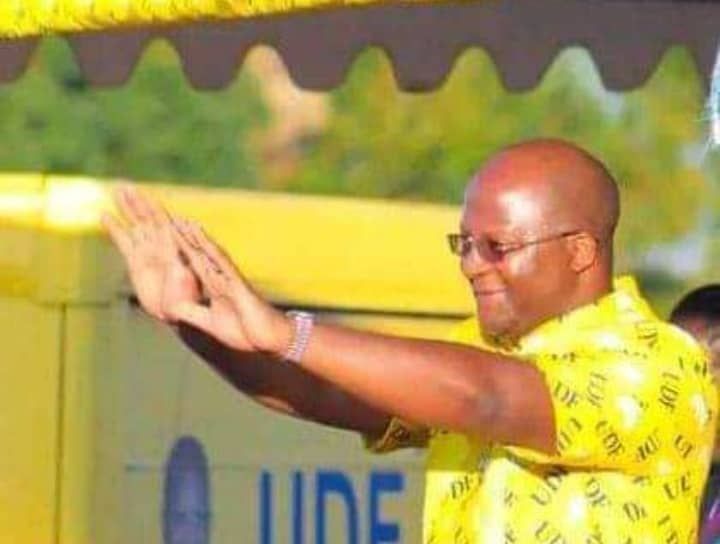By Burnett Munthali
The United Democratic Front (UDF) has issued a stern warning to its leader, Atupele Muluzi, cautioning him against forming an alliance with the ruling Malawi Congress Party (MCP) ahead of next year’s general elections. This comes after growing concerns within the party that such a partnership could undermine the UDF’s political identity and alienate its supporters.
A senior UDF official, who spoke on condition of anonymity, revealed that the party’s grassroots members are increasingly uneasy about recent remarks made by both Atupele Muluzi and his father, former President Bakili Muluzi. These statements have been interpreted as hints at a possible alliance with MCP, raising alarm bells within UDF ranks.

Tensions Within the Party
The UDF, a party that enjoyed significant influence in Malawi’s political landscape during Bakili Muluzi’s presidency from 1994 to 2004, has seen its support dwindle over the years. Many members fear that a partnership with MCP could further erode its standing as an independent political force.
“There is a growing concern within the party that Atupele Muluzi is leaning towards forming an alliance with MCP,” the senior UDF official stated. “Our members feel betrayed by these moves, especially considering the historical rivalry between UDF and MCP. We must preserve our identity and remain focused on our own agenda.”
The source also mentioned that many within the UDF view an alliance with MCP as a step backward, especially given MCP’s historical baggage. For decades, UDF and MCP have stood on opposite sides of Malawi’s political divide, with MCP often criticized for its authoritarian rule under former President Kamuzu Banda. UDF members believe aligning with MCP could compromise their credibility and values, which have long been built on principles of democracy and freedom.
Bakili Muluzi’s Role in the Debate
The involvement of Bakili Muluzi in these discussions has further complicated matters. As a revered figure within UDF and the architect of Malawi’s democratic transition in 1994, his words carry weight. However, his open support for a potential alliance with MCP has caused discomfort among UDF loyalists, who see it as a contradiction of the party’s legacy.
Bakili Muluzi’s recent public statements suggesting that cooperation with MCP could be beneficial in the 2025 elections have been met with mixed reactions. While some view it as pragmatic, others see it as undermining the core principles on which UDF was founded.
“Atupele is following in his father’s footsteps, but the party feels that the elder Muluzi is no longer in touch with the current political realities. UDF should be looking for fresh partnerships or standing alone, rather than joining forces with MCP,” the official explained.
A Divided Future for UDF?
As the 2025 elections draw nearer, the UDF faces a critical crossroads. The decision to form an alliance with MCP or pursue an independent strategy could determine the party’s future trajectory. Some within UDF argue that standing alone, even at the risk of losing influence, would be better than compromising the party’s integrity. Others, however, believe that a strategic partnership with a ruling party like MCP could open doors for political relevance and cabinet positions, especially in the event of a post-election coalition government.
Atupele Muluzi, who previously served in coalition governments and has worked closely with different political figures, remains a polarizing figure within UDF. His political experience, combined with his father’s legacy, has positioned him as a natural leader. However, his inclination toward alliances has been a source of internal division.
If the party’s internal disagreements continue unresolved, UDF risks further fracturing, especially if a segment of the party breaks away in protest of a potential alliance with MCP.
Conclusion
As the United Democratic Front deliberates its next steps, the leadership faces immense pressure to make decisions that will either consolidate the party’s future or risk further division. While Atupele Muluzi and his father, Bakili, may view an alliance with MCP as a strategic move, many in the party believe that the risks outweigh the benefits. The coming months will reveal whether UDF can navigate these internal tensions and present a unified front in the 2025 polls or whether this potential alliance with MCP will drive a wedge between the party and its supporters.
Only time will tell if UDF can balance pragmatism with principle as it charts its course in Malawi’s ever-evolving political landscape.


